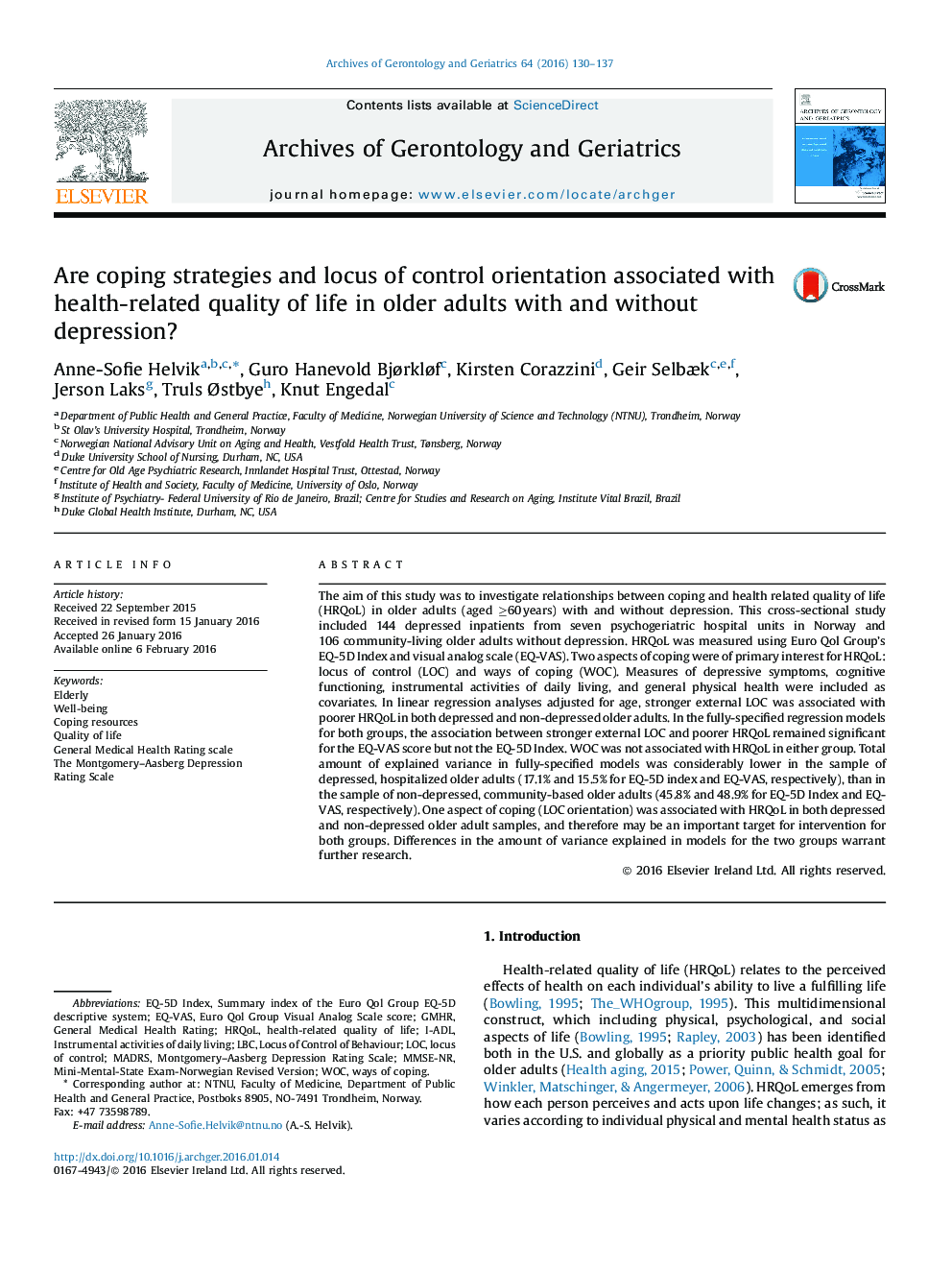| کد مقاله | کد نشریه | سال انتشار | مقاله انگلیسی | نسخه تمام متن |
|---|---|---|---|---|
| 1902683 | 1534425 | 2016 | 8 صفحه PDF | دانلود رایگان |
• Problem and emotion focused ways of coping were not associated with HRQoL.
• Stronger external locus of control orientation was associated with poorer HRQoL.
• The relative importance of coping variables for HRQoL differed between the older adults hospitalized with depression, and the community-residing persons without depression.
The aim of this study was to investigate relationships between coping and health related quality of life (HRQoL) in older adults (aged ≥60 years) with and without depression. This cross-sectional study included 144 depressed inpatients from seven psychogeriatric hospital units in Norway and 106 community-living older adults without depression. HRQoL was measured using Euro Qol Group’s EQ-5D Index and visual analog scale (EQ-VAS). Two aspects of coping were of primary interest for HRQoL: locus of control (LOC) and ways of coping (WOC). Measures of depressive symptoms, cognitive functioning, instrumental activities of daily living, and general physical health were included as covariates. In linear regression analyses adjusted for age, stronger external LOC was associated with poorer HRQoL in both depressed and non-depressed older adults. In the fully-specified regression models for both groups, the association between stronger external LOC and poorer HRQoL remained significant for the EQ-VAS score but not the EQ-5D Index. WOC was not associated with HRQoL in either group. Total amount of explained variance in fully-specified models was considerably lower in the sample of depressed, hospitalized older adults (17.1% and 15.5% for EQ-5D index and EQ-VAS, respectively), than in the sample of non-depressed, community-based older adults (45.8% and 48.9% for EQ-5D Index and EQ-VAS, respectively). One aspect of coping (LOC orientation) was associated with HRQoL in both depressed and non-depressed older adult samples, and therefore may be an important target for intervention for both groups. Differences in the amount of variance explained in models for the two groups warrant further research.
Journal: Archives of Gerontology and Geriatrics - Volume 64, May–June 2016, Pages 130–137
